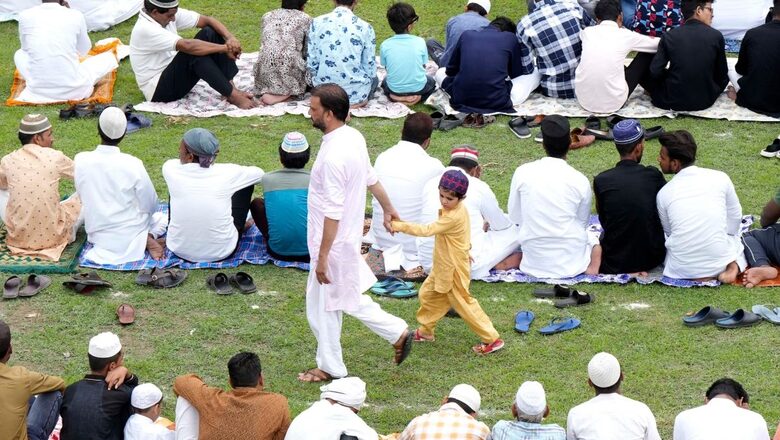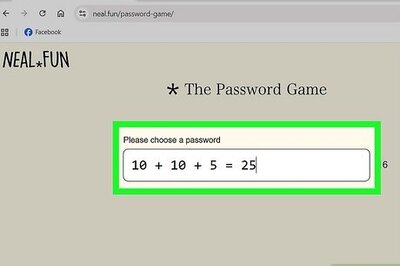
views
The Hindustan Times Op-Ed by Karan Thapar reviews Ziya us Salam’s book, Being Muslim in India: A Critical View. Thapar notes the increasing question of what it means to be Muslim in India. He suggests the answer should be no different from being Hindu, Christian, Sikh, etc. However, he overlooks the nuanced experience of being an atheist with Muslim heritage in India, citing public figures like Javed Akhtar and Umar Khalid, etc.
Intra-Muslim violence and takfiri-ism persist, evident in cases like the killing of Farook in Coimbatore by a childhood friend due to his membership in a WhatsApp atheist group. Unlike the indigenous Parsis who found asylum and thrived in India, the Abrahamic religions of Christianity and Islam are not native to the country. Interestingly, Jews have not faced persecution in India, and the Prophet’s family’s descendants who took refuge in India, have prospered in the region.
Ziya-us-Salam’s book, Women in Masjid: A Quest for Justice, addresses the long-overdue need for reform in Islam, particularly in light of the 1937 Shariat Act that remains unchanged in post-independence India. The debate on women’s place and participation in mosques involves conflicting views, with some Wahhabi and Salafi sects adhering to strict interpretations, while others, including Ziya us Salam and numerous activists and reformers, advocate for a more inclusive approach based on the Prophet’s life and the examples set by early Muslim women challenging authority.
Zia’s book underscores the lower representation of Muslims, accounting for only 4.9 per cent in state and central government employment, 4.6 per cent in paramilitary forces, and 3.2 per cent in IAS, IFS, and IPS. This cannot be solely attributed to the Hindu majority. Despite my and my husband’s postgraduate qualifications, we never applied for a government job because of its reputation of corruption, the non-working ethics of look-busy-do-nothing and taking fat salaries and pensions that we saw our fathers and many of their generation doing during the 80s and 90s. This put us off government jobs altogether.
Moreover, discrimination in government jobs is absent. Muslim families should encourage their children to participate in various examinations for government positions, including UPSC. The case of Shah Faisal, initially associated with sedition and later turning to nationalism, serves as evidence of transparency, provided individuals are committed to the process. The growing awareness of civil services has resulted in a consistent flow of successful Muslim aspirants from various states and union territories, showcasing positive stories of individuals, such as rickshaw pullers’ daughters or labourers’ sons, of Muslim heritage, qualifying for prestigious roles like IAS/IPS/IFS.
Furthermore, the narrative underscores the absence of discrimination in paramilitary forces, the Indian Army, the Navy, and the Air Force, where numerous brave Muslim officers and soldiers, including those in the CRPF, serve. Notable examples include the present-day achievements of Lt Gen (Retd) Ata Hasnain, as well as historical sacrifices by individuals like Havildar Abdul Hamid and Brigadier Usman in pivotal wars. The J&K Police Force, predominantly consisting of Muslim personnel, stands as an elite counter-terrorism force combating Pakistan-sponsored jihad in Kashmir, akin to our own ‘Fauda’, with members making significant sacrifices. The recent funeral of a retired SP killed by terrorists in Baramulla while offering dawn prayers highlights the ongoing threats, sparing no one, even those who have retired.
Additionally, Kashmiri Muslim women are breaking barriers by pursuing careers as commercial pilots, with some men undergoing training as fighter pilots. The growing statistics of Muslims applying for government jobs, civil services, and roles in the armed forces over the past decade can be attributed to increased internet access and technology reaching remote areas, fostering awareness of diverse career options. It is noteworthy that the baggage of the two-nation theory is being shed by the millions of Indian Muslims, which led to the partition of India, more than 70 years ago.
The late 20th century and contemporary geopolitical shifts have influenced the Muslim mindset, leading to a shift from Islamist supremacy, the perfection syndrome, and perpetual victimhood (Oppression Olympics). Concepts like co-existence, tolerance, democracy, nation, and electoral politics are gaining prominence. Karan Thapar’s concern about the underrepresentation of Muslims in political positions might be addressed in the future. The consequences of historical events, like the Partition, and recurring internal insurgencies (SIMI, IM, now-banned PFI) contribute to a trust deficit, impacting political participation. Addressing these challenges may lead to increased Muslim representation in Indian politics.
Hopefully, Thapar’s lament that there are only 27 Muslim seats in the Lok Sabha and not a single Muslim Chief Minister in 28 states, or no Muslim minister in 15, will be addressed a few years from now. There has to be a price to pay for the Partition of the subcontinent. Waging a jihad against the Indian state and ethnically cleansing a community will not be without consequences. Recurring internal insurgencies such as SIMI, IM, and the now-banned PFI, with their terror links unearthed every second week by the NIA, are bound to create a trust deficit in any political party. Not to mention the thousands participating in Yakub Menon’s funeral or Burhan Wani’s.
I saw Shaheen Bagh, the site of massive protests for months against the CAA. Just like nobody in Kashmir Valley or Pakistan had read the UN resolutions regarding J&K, the protestors disrupted life without realising or reading that there was nothing anti-Muslim in the CAA. The condition of the roads, the shanties, the ghettos, and the canal at Jasola, encircling the slum is pathetic. How is it the demand for macadamised roads, better housing, mohalla clinics, functional schools and colleges, cleanup of neighbourhoods, and rehabilitation of slum dwellers never gets the Muslims into a Shaheen Bagh-like demonstration?
Every evening I patiently wait as groups of children often escorted by burqa-wearing mothers use the metro lifts, designated for senior citizens, the disabled, and the infirm, creating a hullabaloo and general nuisance. Nobody objects to the broods, fiddling with the lift’s automatic controls, or the shoving, pushing, jostling, which can be fatal for the elderly — the hijab, triple talaq, CAA debates across TV channels having ensured no one raises a voice to a burqa-escorted brood. Thapar could do well to instead lament the absence of mohalla clinics or a significant number of doctors, and health workers who could have raised awareness about contraception, early child marriages, the veil, empowerment, financial independence, etc, in the Muslim ghettos across the country.
I did investigate the derogatory ‘puncture wala’ thrown by Muslimphobes and the right wing at dissenting Muslims, whether offline or online. Turns out it is true, my son expressed surprise at the number of carpenters, AC repairers, plumbers, etc, from Muslim heritage who turn up for maintenance. Could it be the viral videos that feature Muslim punks, high on TikTok dopamine, threatening the majority, with 15 minutes of police absence could be adding to the trust deficit? To every ‘Babar ki Aulad’ taunt, from the Hindu right wing, the Muslim far right jeers back with ‘Aurangzeb, Ghori, Ghazni, Mir Qasim destruction’ — a painful reminder of the Islamic invasion and conquest of India.
Thapar’s ‘Untold Story’ should for a change play the ‘Devil’s Advocate’ for the unheard voices among the 174 million Muslims of India who consider themselves part of India, do not mind having Hindus as their leaders, and representatives in parliament, councillors, chief ministers, or presidents and prime ministers, who know they need the Hindu majority if they want to safely profess their agnosticism, atheism or doubt/heresy. In playing saviour to the Muslim elite, the useful idiots of Hindu heritage should upgrade themselves about the Muslim-on-Muslim violence happening since 632 AD and continuing to this day and consider the aspirations of the ordinary silent majority Muslims.
The author is a writer and an educationist from Srinagar. Views expressed in the above piece are personal and solely those of the author. They do not necessarily reflect News18’s views.
















Comments
0 comment